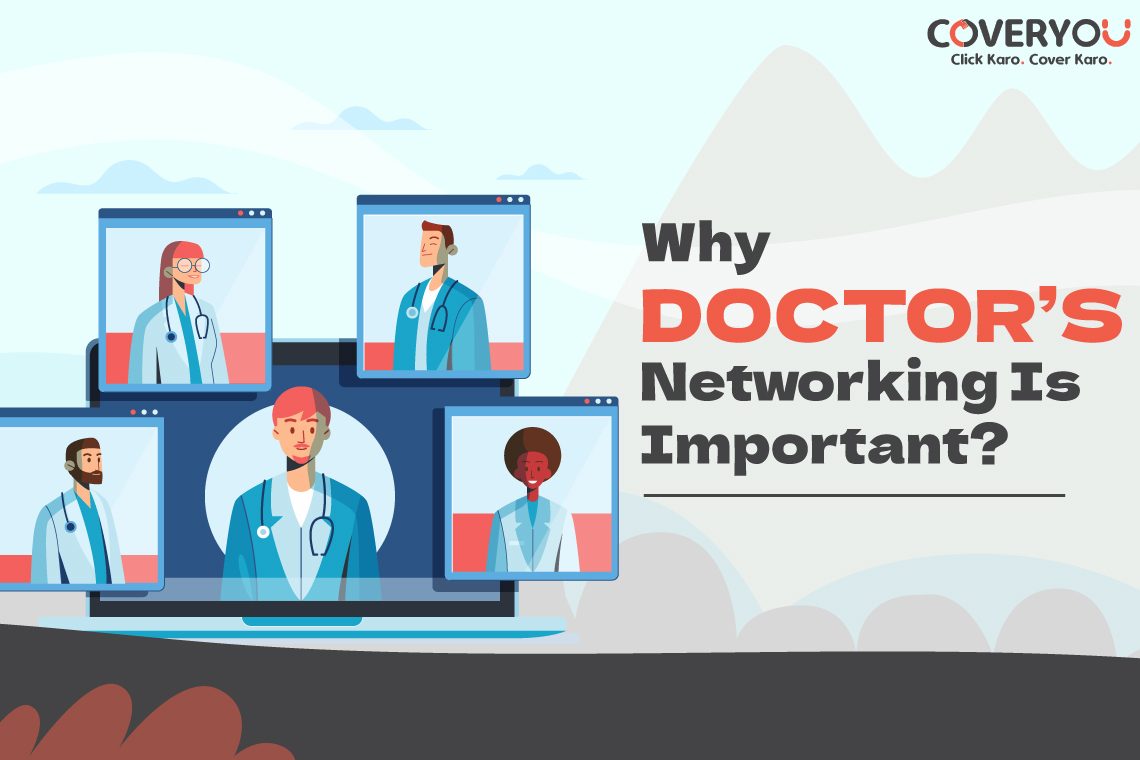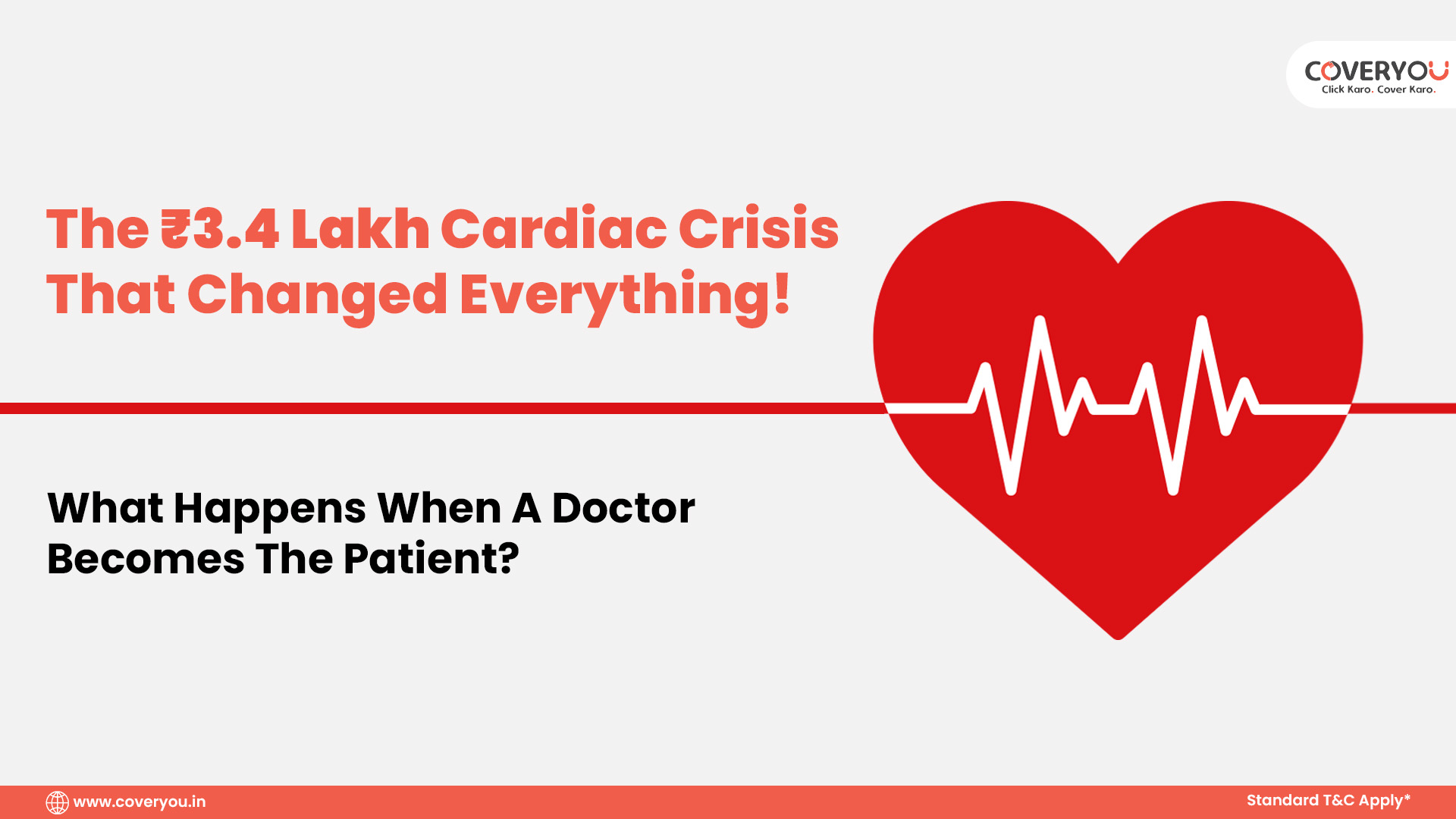The healthcare landscape is very complex and keeps evolving with time. Now, there isn’t a speck of doubt that today’s world offers a wide range of opportunities for doctors and surgeons. However, it comes with even more complex scenarios to navigate. Having a better understanding and collaborative approach among doctors is becoming more apparent. In this blog, we will delve into the crucial role of Doctors’ Networking, its concept & how it helps healthcare professionals in advancing their careers.
Networking of Doctors, An Overview:
Networking of Doctors refers to professional connections among healthcare professionals, it involves establishing and maintaining professional relationships. The network consists of specialists, researchers, educators & healthcare providers from the different fields of medicine. The primary goal of doctors’ networking is to encourage communication, collaboration, and sharing of experiences to support professional growth and enhance the quality of patient care. Being surrounded by like-minded people, who share the same vision & values can be instrumental in overcoming challenges and helping in building an innovative future.
The Importance of Doctors’ Networking for Healthcare Professionals:
Better & More Enhanced Patient Care:
Doctors’ networking leads to improved patient care by facilitating collaboration and the exchange of insights. This collaborative approach among doctors helps make informed decisions and offers better patient-oriented results. As per MDforlives, a recently published study has shown that a strong and cooperative network among doctors significantly contributes towards the improvement of care coordination and elevates the quality of safety in healthcare service.
Control Burnout & Emotional Support:
The medical profession, by nature, is a stressful job, and doctors suffer from burnout commonly. Shanafelt et al. noted a 37.9% occurrence of burnout symptoms among physicians, compared to 27.8% in the control group. Burnout among healthcare professionals can impair clinical decision-making, communication with patients and colleagues, and the ability to handle work-related pressure, thus impacting care quality and patient outcomes. Networking acts as a supportive system wherein a doctor can share their thoughts or take suggestions and receive emotional support. Interacting with peers can reduce feelings of isolation and stress. It also indicates better health and job satisfaction. Getting emotional support and sharing experiences with fellow doctors will be a big factor in fighting burnout and keeping one’s well-being in good condition.
Professional development & achieving greater success:
The medical profession is continuously evolving with new technological advances in treatment and research discoveries. Doctors get the chance to continue education and professional development through networking. Maintaining a proper network of colleagues can help doctors climb the ladder of success in their careers. Networking allows doctors to stay updated with current information & new developments by exchanging ideas and best practice opportunities with peers.
Fostering Innovation & research:
Collaborative networking fosters innovation and research. It encourages an exchange of ideas and a call for research initiatives, out of which major discoveries might be made and breakthroughs in medical science can be achieved. According to an Elsevier survey, physicians are constantly seeking the latest studies to assist in the process of making clinical decisions.
Navigating the healthcare system:
A strong professional network is incredibly helpful as doctors navigate complex healthcare systems. It allows doctors to exchange best practices, engage in dialogue about any policy changes, or work together on other factors, including advocating for improvement in healthcare delivery. Networking would help them pool their challenges together and work collectively to bring about positive change in the healthcare sector.
Build a strong reputation:
In the healthcare ecosystem, getting acknowledgement or referrals from other medical professionals can not only build the reputation of the doctor but also the hospital. Effective networking gives the healthcare professional a competitive edge in building a professional reputation.
Different Platforms for Doctors Networking:
Professional Associations:
Professional associations such as the Indian Medical Association (IMA) & other different medical associations provide a platform for doctors to connect, share knowledge, and engage in continuing medical education. They often organize conferences, seminars, and workshops that facilitate networking and professional development. Attending national and international medical conferences allows doctors to network with peers from diverse backgrounds, fostering collaboration and knowledge exchange, and contributing to the collective growth of the medical community.
Digital Platforms:
The digital era offers digital solutions to everything Including networking for doctors. The survey of medical school healthcare professionals and students revealed that a majority, 85%, reported daily use of mobile devices for clinical purposes, primarily for information access, time management, education-related communication, and patient care coordination. This led to the emergence of various platforms or networking sites for doctors. Such as Docplexus, Curify, Figure1, DailyRounds, Sermo & Doximity.
Docplexus:
Docplexus is the largest network of healthcare professionals in India with over 250,000 members. It provides valuable opportunities for knowledge sharing through peer-to-peer discussions.
Curify:
This app allows doctors to stay updated on current medical news, and collaborate on critical cases. Provides journals, and guidance, helps find new opportunities with features like job search and interview details.
Figure1:
With almost 50,0000+ users, Figure1 connects healthcare professionals worldwide. It provides a platform for them where they can share and seek opinions on various topics related to patients’ ailments through images. It also helps doctors connect with their peers and provides valuable educational sources.
DailyRounds:
DaillyRounds is a combination of a social network + medical journal. Its user base is around 30,000+, it provides doctors with a drug database. They can also share cases and build a network with peers.
Sermo:
Sermo is like a Facebook platform for doctors, it has a network base of almost 1.3 million professional doctors from 150 countries. Being the largest networking site, it offers medical crowdsourcing and provides a platform for verified & credible physicians to share their research. They can also seek & provide answers related to patient care.
Doximity:
Doximity is the largest networking platform for healthcare professionals in the US. Its user base consists of 80% US doctors with 50% NPs & PAs as verified members. This platform offers secure communication between patients & doctors via phone calls and text. While providing the doctors with job offers, clinical directory, & annual salary surveys.
Source:
https://www.ncbi.nlm.nih.gov/pmc/articles/PMC4029126/
https://www.enago.com/academy/physician-networks-ushering-a-new-era-in-medical-care-delivery/

















